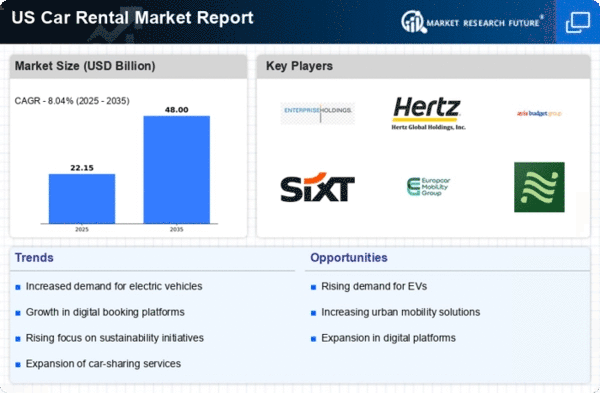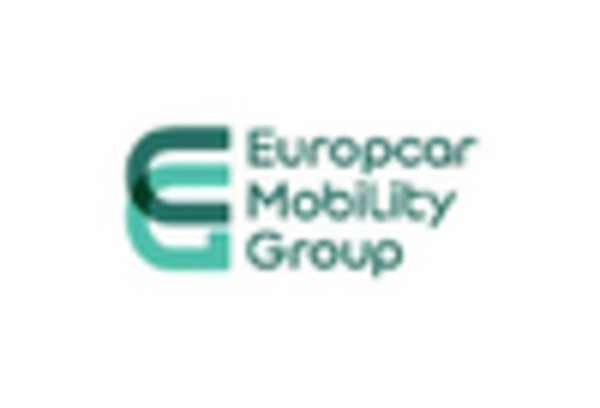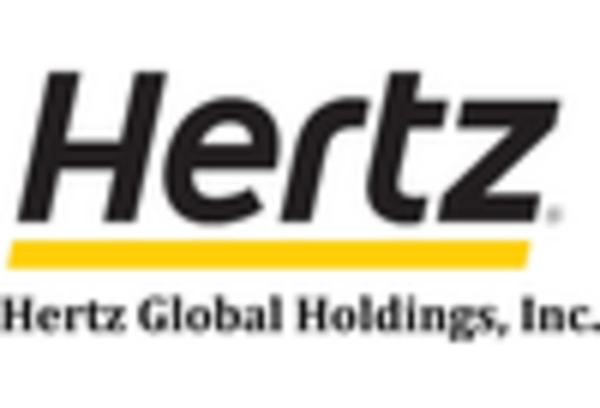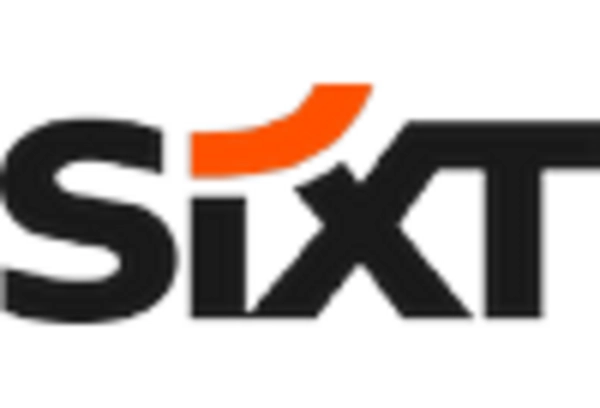Partnerships with Ride-Sharing Services
The car rental market is witnessing a shift through strategic partnerships with ride-sharing services. As consumers increasingly seek flexible transportation options, rental companies are collaborating with platforms like Uber and Lyft to offer integrated services. This synergy allows rental firms to tap into the growing ride-sharing market, which has expanded significantly in recent years. By providing vehicles for ride-sharing drivers, rental companies can diversify their revenue streams and enhance fleet utilization. This trend indicates a potential evolution in the car rental market, where traditional rental models may adapt to meet the changing demands of consumers.
Urbanization and Changing Mobility Patterns
Urbanization is a significant driver impacting the car rental market. As more individuals migrate to urban areas, the demand for flexible transportation options increases. In densely populated cities, owning a vehicle may become less practical due to high costs and limited parking availability. Consequently, car rental services are perceived as a viable alternative for urban dwellers. According to recent data, urban populations in the US are projected to reach 85% by 2030, suggesting a growing reliance on rental services. This trend indicates that the car rental market will likely expand as urban residents seek convenient and cost-effective mobility solutions.
Technological Advancements in Fleet Management
The car rental market is experiencing a transformation due to technological advancements in fleet management. Innovations such as telematics and real-time tracking systems enhance operational efficiency and customer satisfaction. These technologies allow rental companies to monitor vehicle performance, optimize maintenance schedules, and reduce downtime. As a result, companies can potentially lower operational costs by up to 15%, thereby improving profitability. Furthermore, the integration of mobile applications facilitates seamless booking and vehicle access, appealing to tech-savvy consumers. This shift towards technology-driven solutions is likely to attract a broader customer base, ultimately driving growth in the car rental market.
Economic Recovery and Increased Travel Activity
The car rental market is poised for growth as economic recovery leads to increased travel activity. With rising disposable incomes and a resurgence in leisure and business travel, demand for rental vehicles is expected to rise. Recent statistics indicate that travel spending in the US has increased by approximately 20% in the past year, reflecting a renewed interest in exploration and mobility. This trend suggests that rental companies may experience higher utilization rates and revenue growth. As travel patterns evolve, the car rental market is likely to benefit from the resurgence of both domestic and international tourism.
Sustainability Initiatives and Eco-Friendly Options
The car rental market is increasingly influenced by sustainability initiatives and the demand for eco-friendly options. Consumers are becoming more environmentally conscious, prompting rental companies to expand their fleets with hybrid and electric vehicles. This shift aligns with broader trends in the automotive sector, where electric vehicle sales in the US have surged by over 30% in recent years. By offering sustainable choices, rental companies can attract eco-minded customers and differentiate themselves in a competitive market. This focus on sustainability not only enhances brand reputation but also positions the car rental market for future growth as environmental regulations become more stringent.

















